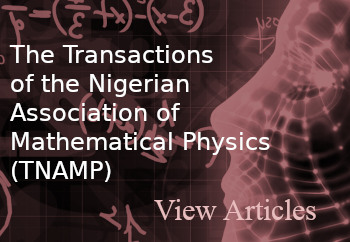REVOLUTIONARY DYNAMIC THEORY OF GRAVITATION
DOI:
https://doi.org/10.60787/jnamp-v66-322Keywords:
Golden Laplacian Operator, Field Equation, Dynamic Spherical Massive Bodies, Generalized Gravitational Scalar PotentialsAbstract
Gravitation is one of the fundamental forces of Physics and the current understanding of gravity is based on Einstein’s General Relativity theory which is formulated within the entirely different framework of Classical Physics. In this research, a generalized Newton’s gravitational field equation for a dynamic homogeneous spherical massive body that depends on the radial distance and
time only was obtained using the Golden Riemannian Laplacian Operator. The generalized gravitational field equation was also applied to a dynamic homogeneous spherical massive body in order to obtain a generalized Newton’s gravitational scalar potential exterior and interior to the body. The results are that the Revolutionary dynamical gravitational field equation and gravitational
scalar potential exterior and interior to the body contains terms of order ????−2 which are neither found in the existing Newton’s and Einstein’s gravitational field equations and gravitational scalar potentials
Downloads
References
Anderson, J.L. (1967), Principles of Relativity Physics (Academic Press: New York), Pp 419.
Arfken, G. (1995), Mathematical Methods for Physicists, 5th edition, (Academic Press: New York), Pp 467-469.
Bergman, P.G. (1987), Introduction to the theory of Relativity (Prentice Hall: India), Pp 203.
Halpern L and Laurent B (1964), On the Gravitational Radiation of Microscopic Systems (II NouvoCimento), Pp 728-751.
Howusu, S.X.K. (2013), Riemannian Revolution in Physics and Mathematics (Jos University Press: Nigeria), Pp 23.
Szekeres G.(1960), On the Singularities of a Riemannian Manifold (Math. Debreca), Pp 285.
Wald R.M. (1984), General Relativity (The University Press: Chicago).
Downloads
Published
Issue
Section
License
Copyright (c) 2024 The Journals of the Nigerian Association of Mathematical Physics

This work is licensed under a Creative Commons Attribution-NonCommercial-ShareAlike 4.0 International License.




